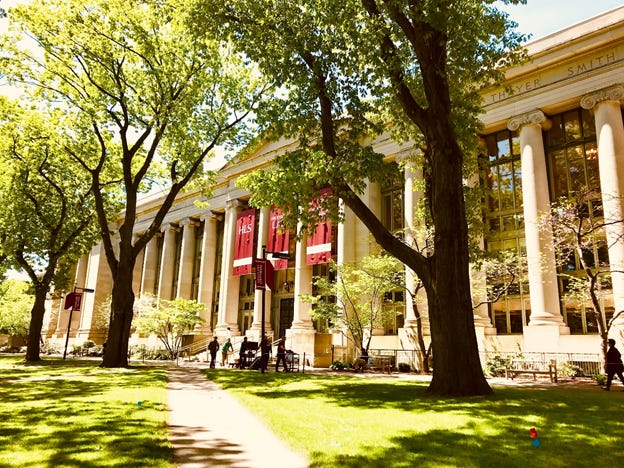Review of BEYOND THE UNIVERSITY
The classic battle between liberal and professional education
Higher education is in an interesting space right now. On the one hand, more people than ever are accessing higher education. Learning is highly flexible in the wake of the pandemic. And more people are pursing advanced training beyond a four-year degree. On the other hand, the costs of college continue to soar. Inequality across the US education system is growing. And, the link between classroom learning and workplace skills seems vast.
These latter concerns are what prompt many to ask: what is the point of higher education if it costs tens of thousands of dollars, may not lead to a related job, and hampers young folks with huge debts?
But what if higher education wasn’t about getting a job? What if it was about personal and intellectual growth? The latter is most closely associated with what we broadly refer to as a liberal education. In Beyond the University: Why Liberal Education Matters, Michael Roth explains the foundations of liberal education and the case for liberal education to better our citizenry.
The case for liberal education is not, in fact, to get a job. So the oft cited problems with higher ed, like little return on investment, majors that ‘don’t matter’, and not learning job skills, aren’t actually a bug in the system if the goal of higher ed is a liberal educational one. But in today’s economy, the public understanding of higher ed is clearly not to provide a liberal education – it is to prepare folks for jobs and have an impact on our world.
This dichotomy between liberal education and what is often referred to as professional education (i.e., education that prepares students for specific careers), is not new. It’s as old as our education system itself. There is a constant wax and wane between the two foci, with professionalism dominating currently, most likely because of the soaring costs of a degree and the burden of debt.
What’s the value of higher ed from a liberal perspective? What if we didn’t treat college as a credentialing machine where students tick off boxes and courses to get a piece of paper? Although we might still be left with the issue of getting young folks into stable careers, liberal education – in theory – should address other complaints in our society: the lack of critical, independent thinking, and polarization due in part to collective ignorance.
Beyond the University provides a deep dive into the philosophical foundations of liberal education and provides perspective of the value of higher ed from our founding fathers and leading philosophers like John Dewy. The core of Roth’s argument, from my reading, is that liberal education is for the benefit of the individual’s mind, our collective citizenry, and to produce habits of lifelong learning and curiosity – not to mechanically train students for hyper-specific jobs.
If I were to place myself on the spectrum form pure liberal to pure vocational/profession education, I’d fall much closer to the liberal end. I also recognize that many people do, in fact, need to tick boxes and get credentials, but I think that says more about our society and its incentives more generally than about what higher education should actually be about at its core.
Beyond the University is a good book, but most of it is on the philosophical history of liberal education – quite useful – rather than him making a case for why we should be prioritizing liberal education, which I thought was odd given the title of the book. But it’s a good read for those interested in learning for learning’s sake!
Published: May 2014
Format: Paperback
If you think this sounds interesting, bookmark these other great reads:
Sustainable. Resilient. Free.: The Future of Public Higher Education by John Warner (2020)
A Perfect Mess: The Unlikely Ascendancy of American Higher Education by David Labaree (2018)
This post contains affiliate links, allowing me to earn a small commission when you purchase books from the link provided. There is no cost to you, and this will allow me to keep this newsletter free and open to all. Happy reading!



